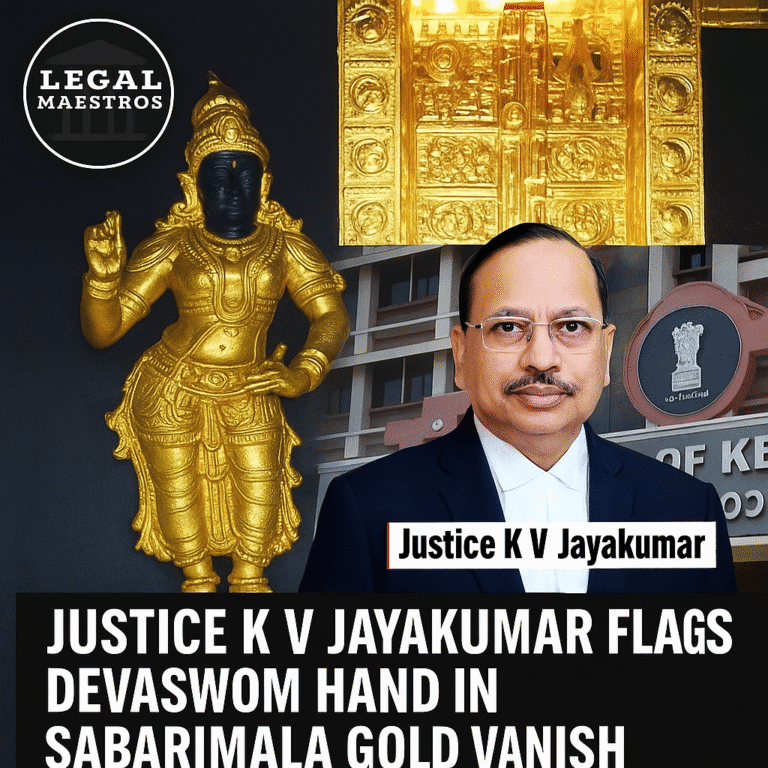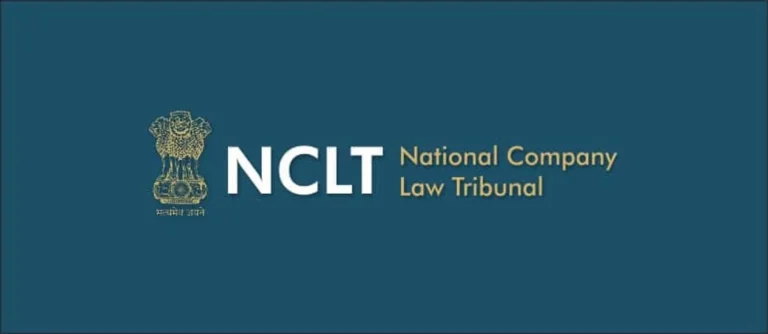
The third pillar of the largest democracy of the world which is known as the Indian judiciary plays its role on the basis of independence. It is not only independence of the executive and legislature, but also, most recently discussed by the Chief Justice of India (CJI) B.R. Gavai, independence of the ability of its very own chief- the Chief Justice to dominate. The claim of CJI Gavai that the Supreme Court is not the court of CJI, and this court is the court of collective wisdom is an important one which clearly defines the foundation of law and constitution to the Indian judicial system. The following paper will explore the legal grounds of such principle, the position of the Chief Justice, and the constitutional protection in order to have the Supreme Court operating as a group of individuals, rather than a single-man institution.
The Legal Provenance of Judicial Independence of the Constitution
The foundation of independent judiciary in India is written in the Constitution itself. The State should also segregate the executive in the public services with the judiciary, an aspect which is core of the rule of law as directed by Article 50. The independence of the judiciary however is not only an institution like feature of the Constitution rather it being part of the basic structure of the constitution as had been the case in the landmark judgment of Kesavananda Bharati v. In the state of Kerala (1973). This implies that even the Parliament cannot alter the Constitution to derail the independence of the judiciary.
Several provisions of the Constitution preserve the independence of the judiciary, among which one can list:
For any queries or to publish an article or post or advertisement on our platform, do call at +91 6377460764 or email us at contact@legalmaestros.com.
Appointment and Tenure: Article 124(2) is concerned with the appointment of the judges to Supreme Court. Although the role of President is involved, the judiciary over time has taken it to be, whereby it gives the primacy to the opinion of the senior-most judges of the Supreme Court, which has also been called the Collegium. The system which was originally adopted due to the case of the Three Judges was introduced in order to reduce the intervention of executives when it comes to judicial appointments and transfers hence providing an environment where judges can be appointed based on merit and not based on influence.
Security of Service A Supreme Court judge has a lifetime appointment (until the age of 65) and may only be removed by a complicated and arduous procedure of impeachment by Parliament, based on confirmed misconduct or incompetence. Such security of tenure exempts judges the fear of being removed arbitrarily and this ensures that judges pass judgments without fear or favor.
Financial Independence: The remuneration of judges would be paid out of the Consolidated Fund of India and so they cannot be voted on in Parliament. This will make the legislature not to control the judiciary using financial power.
For any queries or to publish an article or post or advertisement on our platform, do call at +91 6377460764 or email us at contact@legalmaestros.com.
The Chief Justice: First Among Equals
In this context of an independent judiciary, the position of Chief Justice of India also has been miscomprehended. The CJI is without any doubt the chief of the Indian judiciary and is a person wielding immensely high power. This is not, however, an absolute authority. As per the law, the position of the CJI is that of a primus inter pares, a Latin term, which translates as first among equals.
The Chief Justice is mainly in an administrative position. These include:
Maker of roster: It is the role of the CJI to assign the cases to various benches and constitute constitutional benches to hear important cases of law. The authority, regarded as the master of the roster is a rather important administrative role.
For any queries or to publish an article or post or advertisement on our platform, do call at +91 6377460764 or email us at contact@legalmaestros.com.
Administrative Head: The executive management of the Supreme Court is done by the CJI who appoints officials of the court and also manages the resources of the court.
Although these powers are quite numerous, the aim of the powers is not to grant the CJI unilateral control over judicial functions of the court. The authority to constitute benches and assign cases by the CJI is a means of streamlined judicial administration only and not of determining the nature of the outcome of the cases. The words of justice Gavai reiterate the fact that this strength needs to be used with institutional integrity and in a way that does not jeopardize the collective institution.
Collegium System: A Balance to the Power of an Individual
The very organization of Collegium is one of the best examples of the principles of law that stop the accumulation of power in the hands of one person. Even though the Collegium is headed by the CJI, the latter is part of the Collegium, which includes the five senior most judges of the Supreme Court. Judicial appointments and transfers are decided by all the members of the Collegium and judgement of the CJI when not agreed by the other members of Collegium is not binding to the government. This is a systematic method of collective decision-making in that it is a check on the personal authority of the Chief Justice as important decisions related to the judiciary are taken at a consensus of respected judges.
For any queries or to publish an article or post or advertisement on our platform, do call at +91 6377460764 or email us at contact@legalmaestros.com.
The remarks of CJI Gavai are more applicable in case of Collegium. By emphasizing the presence of the collective wisdom, he is reaffirming the very principle which the College system is trying to safeguard. He is indicating his intention to a more open and participatory model of the administration of justice, shunning any semblance of one-man one-course style of decision-making.
The Value of Judicial Correction of Itself
It is not that the statements made by CJI Gavai are just a repetition of what is legal; rather it is a very important procedure of self-correction on the part of the Judges. Over the years, apprehensions/ concern and debate both in and outside the legal fraternity have existed, that the process of the accumulation of power by the Chief Justice may entail an excessive concentration of power in the person of the Chief Justice. The so-called master of the roster power has been discussed as well with some opponents even predicting its potential use to constitute the benches that would favor one or another outcome on the politically controversial case.
By noting clearly that the Supreme Court is not that of the CJI, CJI Gavai is taking proactive steps towards these apprehensions. His comments are not the first of its kind; others like his predecessors, Justice U.U. Lalit and others have also made moves towards making the administrative functions of the court more transparent and accountable. Such an institutional soul-searching is essential in ensuring that people have confidence in the judicial system. It must be noted that the judiciary does not get its validity through the democratic processes, but it is capable of fulfilling its official mandate of upholding constitutional values with integrity and impartiality. When the judiciary is perceived to be decided by an internal pecking order, as opposed to judicial wisdom as a group, credibility breaks down.
For any queries or to publish an article or post or advertisement on our platform, do call at +91 6377460764 or email us at contact@legalmaestros.com.
A Re-Affirmation of Constitutional and Legal Values
Summing up, the statement issued by CJI Gavai is an effective and opportune reminder of the legal and constitutional principles that support the Indian court. It is also a reminder that the Supreme Court is an institution, and that the role of each of the judges is essential and independent. Although the CJI carries enormous responsibility, he is not a monarch but a first among equals. There is the legal framework that consists of constitutional guarantees of the independence of the judiciary, the Collegium system, the principle of beivqdor rnotstrora, all aimed at the fact that the judicial system is a truly independent and collegial one.
The remarks by CJI Gavai are testimony to a judiciary which is now in the mood to introspect and in turn grapple with their own issues. By mentioning the collective nature of the court, he is addressing not only the legal member community, but the whole country, which boosts the opinion that the Supreme Court is a custodian of the Constitution, and the joint legal knowledge and wisdom of all its judges should lead to its interpretation. This not only empowers the institution of the Supreme Court but it also fortifies the fundamentals of constitutive democracy of India.




![Research Assistantship @ Sahibnoor Singh Sindhu, [Remote; Stipend of Rs. 7.5k; Dec 2025 & Jan 2026]: Apply by Nov 14, 2025!](https://legalmaestros.com/wp-content/uploads/2025/11/Gemini_Generated_Image_s0k4u6s0k4u6s0k4-768x707.png)
![Karanjawala & Co Hiring Freshers for Legal Counsel [Immediate Joining; Full Time Position in Delhi]: Apply Now!](https://legalmaestros.com/wp-content/uploads/2025/11/Gemini_Generated_Image_52f8mg52f8mg52f8-768x711.png)
![Part-Time Legal Associate / Legal Intern @ Juris at Work [Remote]: Apply Now!](https://legalmaestros.com/wp-content/uploads/2025/11/ChatGPT-Image-Nov-12-2025-08_08_41-PM-768x768.png)
![JOB POST: Legal Content Manager at Lawctopus [3-7 Years PQE; Salary Upto Rs. 70k; Remote]: Rolling Applications!](https://legalmaestros.com/wp-content/uploads/2025/11/ChatGPT-Image-Nov-12-2025-08_01_56-PM-768x768.png)